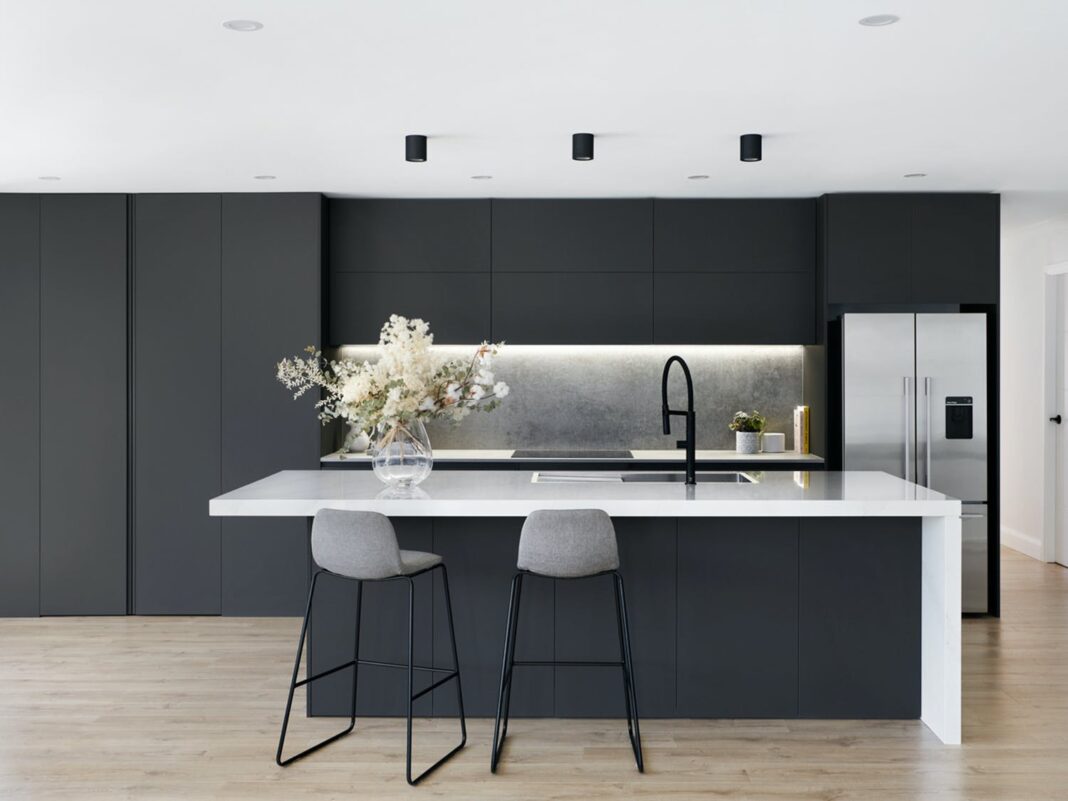(Cover photo credit: Cosentino, Australia)
When I first took over the job of F&D’s digital editor in 2019, one of my priorities was to post seven days a week. Previously we’d been covering weekdays well enough, but omitting weekends. I thought there’d be plenty of local items for Saturday, leaving Sunday to fill.
This is how “Edibles & Potables” came to be. It’s a Sunday slot that ranges beyond our metro Louisville coverage area, intended to be food (and drink) for thought.
Wikipedia provides an introduction to The Nation, to which I’ll be referring today.
The Nation is a progressive American monthly magazine that covers political and cultural news, opinion, and analysis. It was founded on July 6, 1865, as a successor to William Lloyd Garrison’s The Liberator, an abolitionist newspaper that closed in 1865.
The topic? Your kitchen. The question: Is the value of your kitchen expressed by design, as it impacts current fashionability and potential resale value, or is design a consideration when it comes to a kitchen’s intended function (cooking food)?
To set the stage, here’s a prelude.
Form over function: beautifully designed things that simply don’t work, by Nick Leech (Heart Internet UK)
The architect Louis Sullivan famously wrote “form ever follows function”, back in 1896, and every architecture and design student has been taught that ever since.
A key part of this principle is that the designer must consider the function of this project to be more important than the established precedent of previous, similar projects. So, an important part of the Form Follows Function dictum is that Form Does Not Follow Precedent.
This, then, might explain why there are examples (so very many examples) of objects being re-designed simply to make them different – and not to make them better.
The Nation’s take: “We’ve privileged constant renovation over resilience, and it’s damaged the aesthetics and functionality of domestic architecture.” The article is free, and much more interesting than these few excerpts.
Capitalist Rot Has Spread to American Kitchens, by Kate Wagner (The Nation)
Every time I come to Europe, I experience culture shock when I first see a minuscule apartment kitchen. There are luxurious exceptions for the wealthy, of course, but in most cases the kitchen is simply not the most important room. In the United States, it’s hard to escape the sense that one’s kitchen is a status symbol that determines the quality of one’s domesticity and social life.
-snip-
Blaming new websites obscures the core problem: an unsustainable cultural ecosystem that values homes as status symbols or investments rather than as places for dwelling and living … lost in all of this, however, is what a kitchen is or does.
-snip-
My tiny kitchen in Ljubljana more closely aligns with the labor assumptions behind the once-dominant enclosed kitchen layouts before the open-floor plan was popularized. Kitchen design has always been a question of labor—historically women’s labor—whether that meant keeping that labor from view or allocating it most efficiently.
-snip-
Maybe we should spend less time contemplating countertops and finishes and instead ask ourselves what even the humblest architecture does—or should do—for us.























